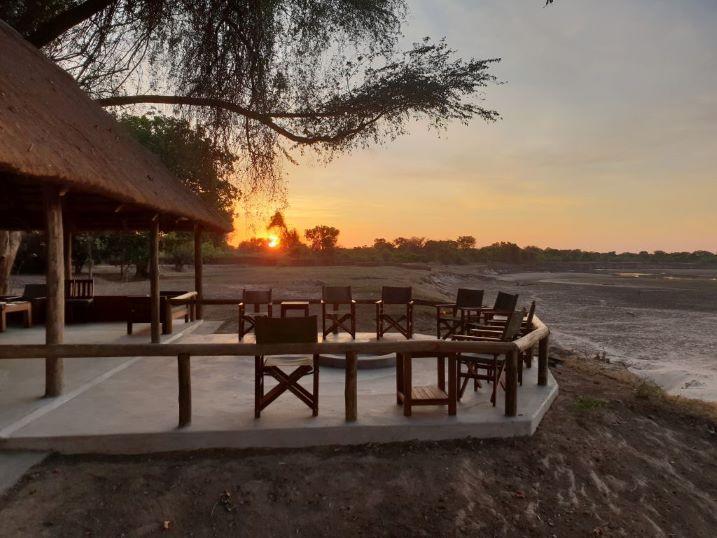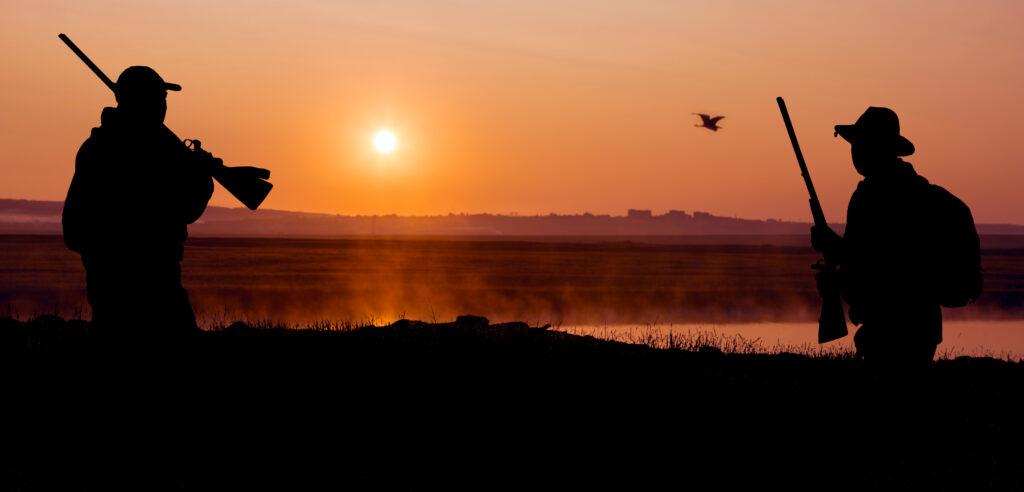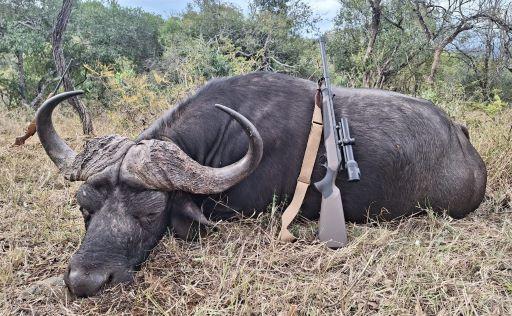Planning an African hunting safari requires more than just choosing a destination—it’s about timing your trip to align with the best conditions for a successful hunt. Africa’s diverse climates and ecosystems mean that the ideal hunting season can vary depending on the region and the species you’re targeting. Understanding these seasonal patterns helps ensure you make the most of your adventure.
In this article, we’ll explore how factors like weather, wildlife behavior, and regional differences influence the best time of year to hunt in Africa. Whether you’re aiming for the Big 5 or other prized game, knowing when to go can elevate your experience and connect you with the continent’s incredible landscapes and wildlife. Let’s dive into what makes timing so essential for an unforgettable African hunting journey.
[DYNAMIC-BLOGTABLEOFCONTENT]

Key Takeaways
-
The best time to hunt in Africa typically falls during the dry season (May to October), when sparse vegetation and concentrated water sources improve visibility and tracking conditions.
-
Regional climate plays a crucial role in determining hunting seasons, with Southern Africa and East Africa following different weather patterns that influence species availability.
-
Game behavior and migration patterns are key factors; animals often gather near waterholes during the dry season, while the wet season may offer unique opportunities for specific species like crocodiles or hippos.
-
Popular hunting destinations include South Africa, Tanzania, and Namibia, each offering diverse ecosystems, prime species, and well-regulated safari options.
-
Careful preparation, including selecting the right gear for the season and booking hunting packages early, ensures a seamless and successful African hunting experience.
-
Aligning your trip with conservation-focused regulations promotes ethical hunting, safeguarding ecosystems and wildlife for future generations.
Understanding Africa’s Hunting Seasons
African hunting seasons are shaped by the continent’s diverse climates and ecosystems. The best time to hunt often depends on the region and the species you’re pursuing. Proper timing ensures better chances of success and an unforgettable experience.
Overview Of Hunting Seasons
Africa’s hunting calendar primarily revolves around the dry and wet seasons. Dry season hunting in Africa, typically from May to October, is ideal for most regions. During this time, vegetation is sparse, and water sources are limited, making animals easier to spot and track. In contrast, wet season hunting, from November to April, can offer unique opportunities, though dense foliage makes spotting game more challenging.
Southern African nations like South Africa and Namibia align their prime hunting seasons with the dry months. Meanwhile, East African nations like Tanzania and Botswana operate within similar patterns, largely dictated by the needs of African big game hunts such as lion tracking or leopard hunting.
Key Factors Influencing The Best Time To Hunt
-
Regional Climate Patterns: Seasons differ markedly across the continent. Southern Africa’s temperate climate contrasts with East Africa’s equatorial patterns. Understanding regional conditions improves species selection and safari planning.
-
Game Behavior and Movement: Drier months concentrate animals near waterholes, boosting chances during Africa big game hunts. In the wet season, some migratory species, like certain antelope herds, may be more accessible due to localized grazing habits.
-
Targeted Species: Hunting preferences affect timing. The best months for hunting safaris vary based on species like leopards, crocodiles, or hippos. For example, pursuing African Big 5 game (lion, rhino, elephant, buffalo, leopard) is often optimal during the dry season when visibility improves.
-
Hunting Regulations and Conservation: Hunting safari timing aligns with laws ensuring ethical hunting in Africa. Seasons aim to balance hunter satisfaction and sustainability, safeguarding ecosystems for future generations.
Smooth planning ensures the ultimate African trophy hunting season experience that matches your personal goals, whether it’s baboon hunting, crocodile hunting, or tracking the iconic Big 5.

Popular Hunting Destinations In Africa
Africa offers a range of exceptional hunting destinations, each featuring diverse wildlife, breathtaking landscapes, and unique hunting experiences. These locations are carefully chosen for their rich biodiversity and opportunities for big game hunting in Africa.
South Africa
South Africa is known for its diverse terrains and exceptional game species, including African big game hunts. Popular regions like the Limpopo and Eastern Cape host a variety of targets, such as kudu, impala, warthog, and baboons. Seasonal hunting in Africa’s South is highly favorable during the dry season (May to September) when game gathers around limited water sources, increasing visibility. Many visitors aim for Big 5 African game species, including leopards, as the country’s plains offer ideal stalking opportunities.
The infrastructure here caters to seasoned hunters and newcomers, with luxurious accommodations and well-organized safaris. For hunters seeking variety, the combination of plains game and predators like hyenas offers a thrilling challenge. Soweto cultural tours or wildlife reserves can add to these experiences, enriching the trip beyond the field.
Tanzania
Tanzania excels as a prime destination for Africa big game hunts, with its vast wilderness areas, such as the Serengeti and Selous Game Reserve, covering diverse habitats. It’s home to prized species like lions, elephants, and cape buffalo, attracting enthusiasts targeting the Big 5 African game or Dangerous 7. Falling within seasonal hunting in Africa, the Tanzanian dry season from June to October is perfect for tracking game thanks to open environments with minimal vegetation.
Tanzania also offers opportunities like crocodile hunting along riverbanks and safaris showcasing Africa’s majestic migrations. For those interested in ethical hunting in Africa, permits and guided safaris ensure practices rooted in conservation efforts. Additionally, cultural immersion can be integrated with visits to Maasai villages.
Namibia
Namibia is recognized for its open landscapes and well-regulated hunting environments, making it a top choice for African trophy hunting. It’s ideal for plains game like gemsbok, springbok, and wildebeest as well as specialized options, such as hyena hunting. The country’s vast deserts and savannas are especially productive for dry season hunting in Africa, typically spanning May through October.
Namibian African safari hunting combines exciting hunts with unmatched tranquility. Private concessions and hunting lodges are prevalent, offering secluded settings and stunning views. For big game enthusiasts, leopard hunting often takes center stage in Namibia, alongside tracking other predators. Timed properly, a hunting safari here can optimize success during the less-vegetated months when encounters with game increase.
These destinations each provide unique reasons to visit while delivering unforgettable African big game hunting experiences.

Hunting Opportunities By Season
Africa offers diverse hunting opportunities throughout the year, determined by its distinct dry and wet seasons. Timing impacts wildlife movement, visibility, and hunting conditions, making it crucial for a successful African safari hunting experience.
Dry Season Hunting
The dry season, spanning May to October, is the most popular period for African trophy hunting. Vegetation thins, and water sources become scarce, concentrating wildlife in specific areas. This makes it easier to track and hunt species such as kudu, impala, and wildebeest. Regions like Namibia, South Africa, and Tanzania see increased activity during this time due to optimal visibility and accessibility.
Big game hunting in Africa is often favored during the dry season. Hunting species like leopard and predators, such as hyenas, is more productive since prey species congregate near waterholes. Hunting safaris targeting the Big 5 African game—lion, elephant, rhino, buffalo, and leopard—are also most successful during these months due to improved tracking conditions.
The African game migration patterns, like the wildebeest migration in East Africa (June through August), can significantly enhance hunting trips. Aligning your hunting safari timing with such events boosts the chances of encountering specific species. Ethical hunting in Africa thrives during this period as game reserves manage sustainable opportunities while adhering to regulations.
Wet Season Hunting
The wet season, stretching from November to April, offers unique yet challenging hunting experiences. Lush vegetation provides cover for animals, making them harder to spot. However, the abundance of water creates opportunities for species like crocodiles and hippos, ideal for specialized hunts such as hippo hunts or crocodiles hunting.
Because of the increased rainfall, many regions might have access limitations. Still, this season suits those interested in baboon hunting or other secondary species. The wet season also provides opportunities to witness breeding and calving periods for some game, benefiting hunters aiming to observe African game migration patterns or youthful wildlife for better understanding and appreciation.
Wet season hunting Africa often comes with budget-friendly packages due to reduced demand. However, weather variability and regulations may restrict specific hunts. Proper hunting trip planning for Africa during the rainy season ensures safe, ethical hunts aligned with conservation guidelines.
Factors To Consider When Choosing A Time To Hunt
Selecting the right time for hunting in Africa impacts the overall success and experience of your safari. Key factors like weather, wildlife migration, and hunting popularity drive these decisions, each influencing conditions on the ground.
Weather Conditions
The weather directly influences visibility and access to game species. The dry season, which spans May through October, offers clear skies and sparse vegetation, making tracking easier for big game hunting in Africa. Animals congregate at limited water sources, providing prime hunting opportunities. By contrast, the wet season (November to April) challenges hunters with dense foliage and muddy terrains but allows access to species in breeding or migratory periods, ideal for specialized hunts such as crocodiles hunting.
Understanding regional climates ensures a better hunting safari. For instance, Namibia’s arid environment is best for Africa big game hunts during drier months, while Tanzania’s lush ecosystems present unique opportunities year-round.
Wildlife Migration Patterns
Animal movements, especially during migrations, dictate prime hunting moments. Key regions like East Africa host iconic migrations that include wildebeest and zebra, peaking from July to October. For predators such as hyenas and leopards, their movements often align with these prey migrations, intensifying predator activity.
Recognizing species-specific patterns is crucial. Hunting hippos or crocodiles near water bodies may differ from targeting the Big 5 African game on the savannah. By timing hunts with these migrations, we maximize sightings and improve success rates for African trophy hunting season enthusiasts.
Peak Hunting Popularity
Some months see heightened demand due to ideal conditions and trophy availability. June to September is sought-after for dry season hunting in Africa, as game is easier to locate and ground conditions more manageable. This popularity can affect pricing and availability of hunting packages, so early planning ensures access to preferred destinations and species.
Seasonal hunting in Africa means balancing optimal conditions with inclusive experiences. Off-peak months, within wet season hunting Africa timelines, often offer quieter safari environments alongside budget-friendly packages. Planning based on seasonal trends ensures both ethical hunting in Africa and a rewarding trip.

Tips For Planning Your Hunt In Africa
Careful preparation enhances your African safari hunting experience. Understanding the specifics of seasonal hunting in Africa and organizing early ensures a seamless adventure.
Gear Preparation For Different Seasons
Seasonal requirements guide the selection of appropriate hunting gear. In the dry season, lightweight, breathable clothing helps cope with high temperatures, while neutral colors aid camouflage in sparse environments. Bring sturdy boots suitable for dry, uneven terrain to allow more mobility during hunts. Essentials such as sunscreen, a wide-brimmed hat, and high-quality binoculars also matter when spotting game like the Big 5 African game.
During the wet season, an entirely different setup is needed. Waterproof gear, such as jackets and boots, remains vital for navigating wet landscapes. Moisture-wicking underlayers add comfort during long days. Advanced tracking equipment becomes useful as vegetation density makes tracking species like leopards or baboons more challenging. Adapting gear for these conditions supports successful Africa big game hunts.
Booking Lodges And Hunting Safaris
Timing reservations affects the availability of accommodations and hunting packages. The best months for hunting safaris, typically during the dry season from May through October, attract more travelers pursuing popular species during African trophy hunting season. Lodges near renowned hunting zones, such as those in Namibia or Botswana, fill quickly. Booking 6-12 months in advance secures options in prime locations.
Flexible planning can provide cost savings during wet season hunting in Africa, as off-season rates lower expenses for accommodations and safari experiences. Connecting with reputable providers offering expert guides ensures adherence to ethical hunting in Africa while aligning your plan with regional African game migration patterns.

Conclusion
Planning the perfect African hunting safari requires understanding the seasons, regional climates, and wildlife behavior. By aligning our goals with the right timing and destination, we can create a rewarding experience that balances adventure, conservation, and ethical hunting practices.
Whether we’re chasing the thrill of the Big 5 or seeking unique game in breathtaking landscapes, preparation is key. From choosing the right gear to booking early during peak seasons, every detail matters in making our journey unforgettable. With the right approach, Africa’s hunting opportunities offer memories that last a lifetime.
Frequently Asked Questions
What is the best time for an African hunting safari?
The best time for an African hunting safari is typically during the dry season, which runs from May to October. During this period, animals congregate around water sources, making them easier to spot and track. However, some hunters may prefer the wet season (November to April) for unique opportunities and lower costs. The ideal timing depends on the species you want to hunt and the specific region’s climate.
Why is the dry season better for hunting in Africa?
The dry season is favorable because sparse vegetation makes wildlife more visible, and animals cluster around limited water sources. Clear skies and predictable weather conditions also enhance the hunting experience. This period is particularly ideal for hunting species like the Big 5 and participating in migration-related adventures.
Are there advantages to hunting during the wet season in Africa?
Yes, the wet season offers unique hunting opportunities, such as observing animals during breeding periods or engaging in specialized hunts. While challenging due to dense vegetation and less predictable weather, this season may provide budget-friendly packages and a chance to enjoy fewer crowds in popular destinations.
Which African countries are best for hunting safaris?
Top destinations include South Africa, Tanzania, and Namibia. South Africa is famed for its diverse terrains and game species. Tanzania offers iconic hunting experiences, including the Big 5, within expansive wilderness areas. Namibia is known for its well-regulated hunting and opportunities for trophy hunting, particularly plains game and predators.
How do wildlife migration patterns affect hunting?
Wildlife migrations, such as the wildebeest migration in East Africa, dictate optimal hunting moments. Concentrated animal movements during migrations make specific species easier to locate. Planning your safari around such natural events can significantly enhance your chances of success.
What gear should I pack for an African hunting safari?
For the dry season, pack lightweight, neutral-colored clothing, sturdy boots, and sun protection. In the wet season, include waterproof clothing, durable boots, and humid-weather gear. Essential items like binoculars, gloves, and a reliable hat are also crucial for any season.
Is it necessary to book in advance for an African hunting safari?
Yes, booking in advance is highly recommended, especially for the dry season when demand is at its peak. Securing accommodations and hunting packages early ensures access to prime locations and avoids disappointment during the busy season.
How can I ensure an ethical hunting experience in Africa?
To ensure ethical hunting, choose reputable outfitters that follow local regulations and conservation guidelines. Respect seasonal and species-specific hunting quotas, and prioritize sustainable practices that contribute to wildlife preservation and habitat protection.
Are hunting safaris more affordable during the wet season?
Yes, many operators offer budget-friendly packages during the wet season due to lower demand. However, you may face challenges like difficult terrain and unpredictable weather. Proper planning is essential to make the most of cost savings without compromising safety or the quality of your experience.
When is the peak hunting season in Africa?
The peak hunting season generally falls between June and September, as this period offers the best weather and conditions for tracking game. It is a popular time for hunting, so availability may be limited and prices higher—another reason to plan early.
